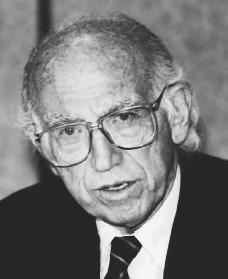What was Jonas Salk's family background?
Jonas Salk was born in New York City to Daniel and Dora (née Press) Salk. His parents were Ashkenazi Jewish; Daniel was born in New Jersey to immigrant parents and Dora, who was born in Minsk, emigrated when she was twelve. Salk's parents did not receive extensive formal education.
Where can I find media related to Jonas Salk?
Wikimedia Commons has media related to Jonas Salk. 1985 Open Mind interview with Richard D. Heffner: Man Evolving... The short film Man Evolving (1985) is available for free download at the Internet Archive.
Where are Jonas Salk's personal papers stored?
Salk's personal papers are today stored in Geisel Library at the University of California, San Diego. Jonas Salk was born in New York City to Daniel and Dora (née Press) Salk. His parents were Ashkenazi Jewish; Daniel was born in New Jersey to immigrant parents and Dora, who was born in Minsk, emigrated when she was twelve.
How many students were involved in the Salk experiment?
Magazine photo of Jonas Salk to O'Neill, "the most elaborate program of its kind in history, involving 20,000 physicians and public health officers, 64,000 school personnel, and 220,000 volunteers," with over 1.8 million school children participating in the trial.

Who is Jonas Salk?
For other uses, see Salk (disambiguation). Jonas Edward Salk ( / sɔːlk /; born Jonas Salk; October 28, 1914 – June 23, 1995) was an American virologist and medical researcher who developed one of the first successful polio vaccines. He was born in New York City and attended the City College ...
Who were Salk's parents?
His parents were Ashkenazi Jewish; Daniel was born in New Jersey to immigrant parents and Dora, who was born in Minsk, emigrated when she was twelve. Salk's parents did not receive extensive formal education. Jonas had two younger brothers, Herman and Lee, a renowned child psychologist.
How old was Salk when he entered CCNY?
Salk entered CCNY at the age of 15 , a "common age for a freshman who had skipped multiple grades along the way.". As a child, Salk did not show any interest in medicine or science in general. He said in an interview with the Academy of Achievement, "As a child I was not interested in science.
Where did Salk work?
In 1941, during his postgraduate work in virology, Salk chose a two-month elective to work in the Thomas Francis ' laboratory at the University of Michigan. Francis had recently joined the faculty of the medical school after working for the Rockefeller Foundation, where he had discovered the type B influenza virus. According to Bookchin, "the two-month stint in Francis's lab was Salk's first introduction to the world of virology —and he was hooked." After graduating from medical school, Salk began his residency at New York's prestigious Mount Sinai Hospital, where he again worked in Francis's laboratory. Salk then worked at the University of Michigan School of Public Health with Francis, on an army-commissioned project in Michigan to develop an influenza vaccine. He and Francis eventually perfected a vaccine that was soon widely used at army bases, where Salk discovered and isolated one of the strains of influenza that was included in the final vaccine.
Where is the Salk Institute?
In 1963, Salk founded the Salk Institute for Biological Studies in La Jolla, California, which is today a center for medical and scientific research. He continued to conduct research and publish books in his later years, focusing in his last years on the search for a vaccine against HIV.
Who said "Salk the scientist sounds austere"?
"If Salk the scientist sounds austere", wrote The New York Times , "Salk the man is a person of great warmth and tremendous enthusiasm. People who meet him generally like him." A Washington newspaper correspondent commented, "He could sell me the Brooklyn Bridge, and I never bought anything before." Award-winning geneticist Walter Nelson-Rees called him "a renaissance scientist: brilliant, sophisticated, driven ... a fantastic creature."
Did Oshinsky get an advantage based on an accident of birth?
No one got an advantage based on an accident of birth.". At his mother's urging, he put aside aspirations of becoming a lawyer and instead concentrated on classes necessary for admission to medical school. However, according to Oshinsky, the facilities at City College were "barely second rate.".

Popular Posts:
- 1. ccsd parent portal west ashley high school
- 2. dhs p ebt parent portal
- 3. district 204 parent portal
- 4. genesis parent portal login cedar grove nj
- 5. republic parent portal
- 6. aeries parent portal tulare ca
- 7. vhs parent portal
- 8. marshalls high school pasadena parent portal
- 9. bandera parent portal
- 10. innersloth parent portal among us